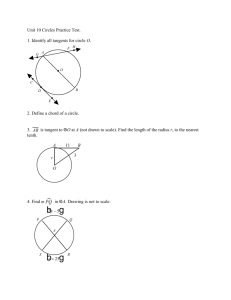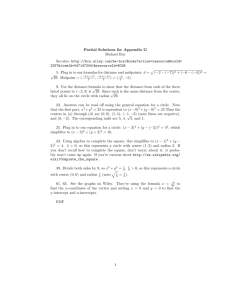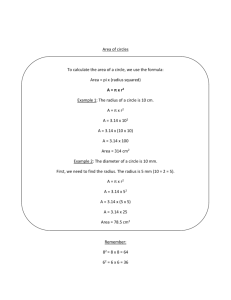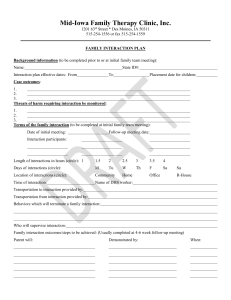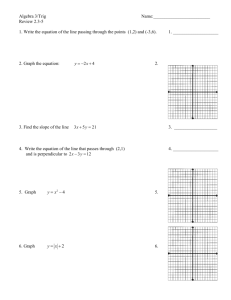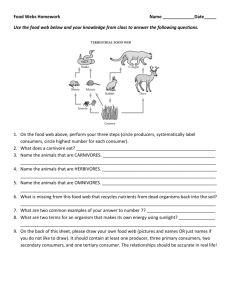Word Document
advertisement
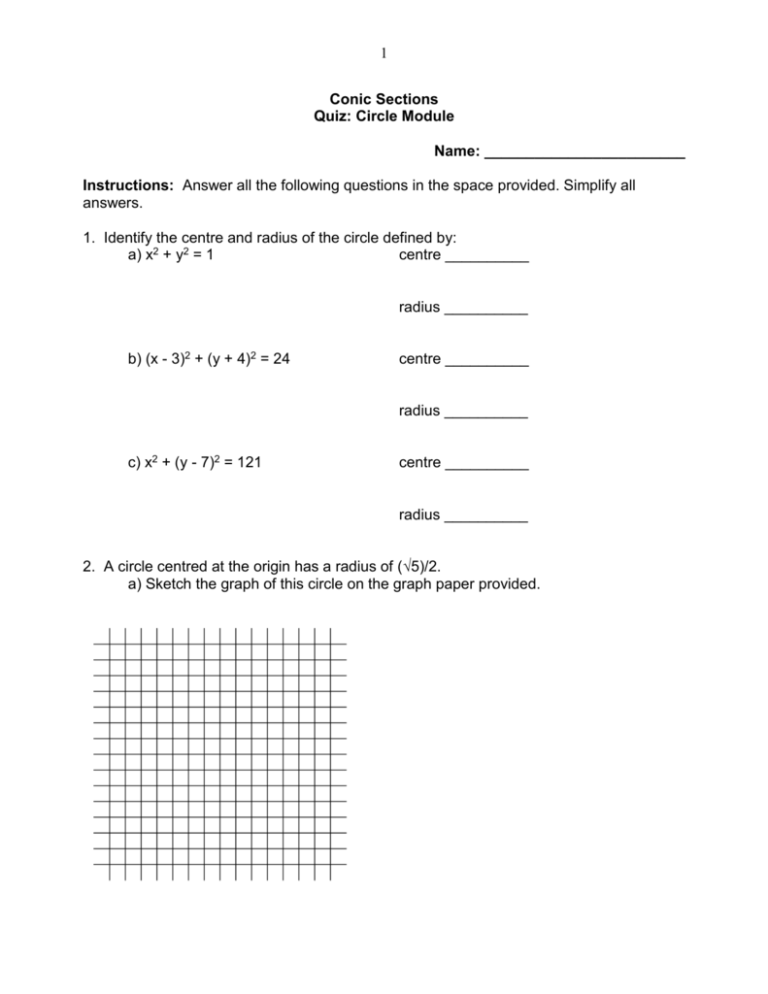
1 Conic Sections Quiz: Circle Module Name: ________________________ Instructions: Answer all the following questions in the space provided. Simplify all answers. 1. Identify the centre and radius of the circle defined by: a) x2 + y2 = 1 centre __________ radius __________ b) (x - 3)2 + (y + 4)2 = 24 centre __________ radius __________ c) x2 + (y - 7)2 = 121 centre __________ radius __________ 2. A circle centred at the origin has a radius of (√5)/2. a) Sketch the graph of this circle on the graph paper provided. 2 b) Write the equation of this circle in standard form. c) Write the equation of this circle in general form. 3. A circle centred at (-7, -5/2) has a radius of 5. a) Sketch the graph of this circle on the graph paper provided. b) Write the equation of this circle in standard form c) Write the equation of this circle in general form. 3 4. Describe the effect that varying h, k and r in the standard equation (x - h)2 + (y - k)2 = r2 has on the graph of a circle by completing the following chart. The Effect of h, k and r on the graph of (x - h)2 + (y - k)2 = r2 Variable The value of the variable decreases The value of the variable increases The variable = 0 h k |r| 5. The equation x2 + y2 - 8x + 20y + 67 = 0 defines a circle. a) Determine the centre and radius of this circle. Centre: __________ Radius: __________ b) Sketch a picture of the circle on the provided graph paper. 4 6. What must be true of the distances between 0 and each point A, B and C, if A, B and C lie on a circle whose centre is (0, 0)? 7. If the equation Ax2 + By2 + Cx + Dy + F = 0 defines a circle, then what must be true about the values of the coefficients A and B? 8. A circle is formed when a horizontal plane cuts a double-napped cone. Describe what happens to the circle as the horizontal plane: a) moves closer to the vertex b) moves away from the vertex c) cuts the double-napped cone at the vertex 5 9. The following circle is centred at (0, 0). a) What is the radius of this circle? Radius = __________ b) Write the standard equation of this circle. c) If the radius of the circle remains constant, then what would be the standard equation of the circle centred at the point A = (4, -6)? d) Sketch the translated circle in the above graph. e) Explain how the circle was translated. 6 10. A circle is defined by the standard equation (x + 4)2 + (y + 6)2 = 169 and x2 + y2 + 8x + 12y - 117 = 0. a) Show that these two equations are equivalent. b) When two equations are equivalent they have identical solution sets. Verify that the point (-9, 6) is a solution of both equations. 11. In the form x2 + y2 = P, a circle exists when P > 0. In the form x2 + y2 + F = 0, a circle exists when F < 0. Show how these two statements are saying the same thing. 12. Explain or use the provided diagrams to show how either the distance formula or the Pythagorean Theorem can be used to: a) Derive the standard equation of a circle centred at (0, 0). b) Derive the standard equation of a circle centred at (h, k).
